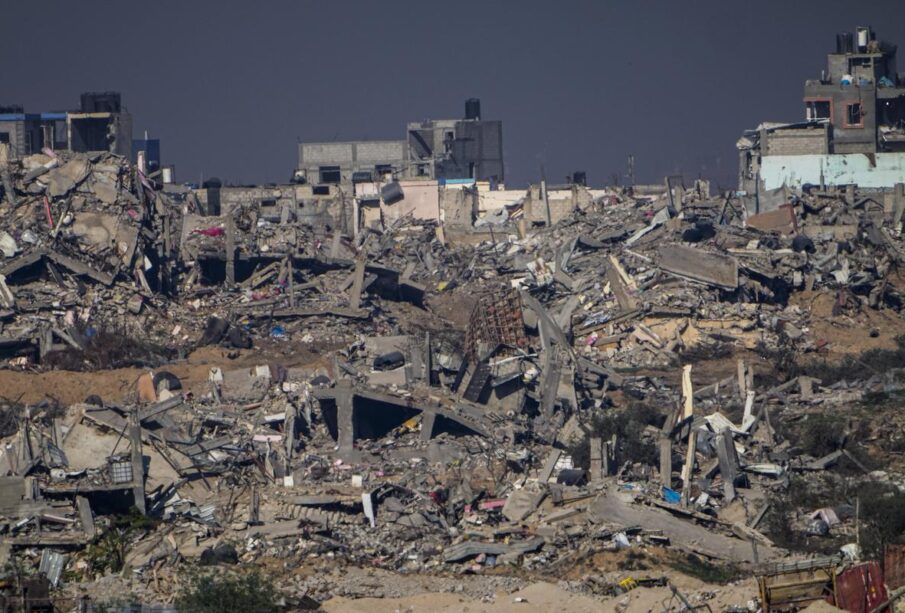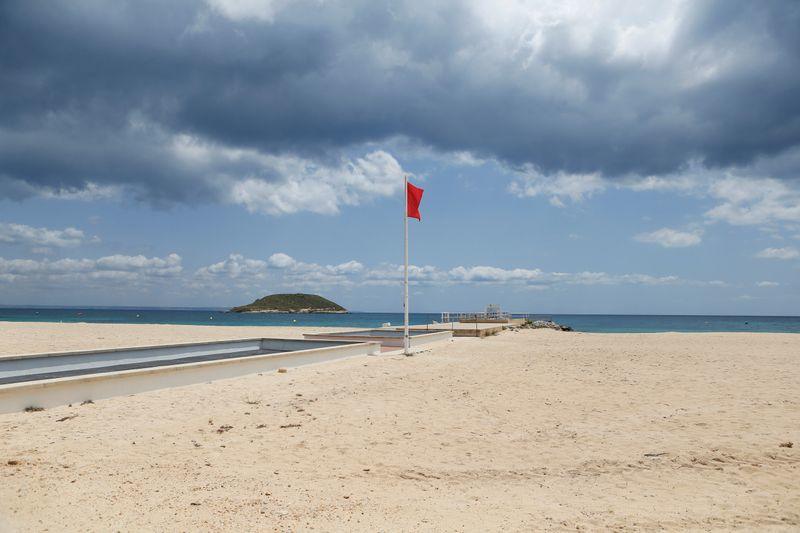South Africa accuses Israel at World Court of genocidal acts in Gaza
 Destroyed buildings in the Gaza Strip, as seen from southern Israel. The army is battling Palestinian militants across Gaza in the war ignited by Hamas’ Oct. 7 attack into Israel. | Photo Credit: AP
Destroyed buildings in the Gaza Strip, as seen from southern Israel. The army is battling Palestinian militants across Gaza in the war ignited by Hamas’ Oct. 7 attack into Israel. | Photo Credit: APBy Stephanie van den Berg, Anthony Deutsch and Toby Sterling Reuters
South Africa accused Israel on Thursday of subjecting Palestinians to genocidal acts at the opening of hearings at the top U.N. court on a case brought against the devastating Israeli military campaign in Gaza.
In the case brought to the International Court of Justice (ICJ), also known as the World Court, South Africa demands an emergency suspension of Israel’s military campaign in the Palestinian enclave.
“South Africa contends that Israel has transgressed Article Two of the (Genocide) convention, committing acts that fall within the definition of genocide. The actions show a systematic pattern of conduct from which genocide can be inferred,” Adila Hassim, advocate of South Africa’s high court, told the ICJ.
South Africa points to Israel’s sustained bombing campaign which has killed over 23,000 people in the small, densely populated Gaza Strip, according to Gaza health authorities.
Israel has said South Africa’s case is baseless.
Israel launched all-out war after a cross-border rampage on Oct. 7 by militants of Gaza’s ruling Palestinian Islamist group Hamas in which Israel says 1,200 people were killed and 240 taken hostage back to Gaza.
The ICJ is hearing South Africa’s arguments on Thursday and Israel’s response to the allegations on Friday.
It is expected to rule on possible emergency measures later this month. The court will not rule at that time on the genocide allegations – those proceedings could take years.
The ICJ’s decisions are final and without appeal, but the court has no way to enforce them.
With the politically charged case attracting global attention, supporters of both sides of the case planned marches and rallies in The Hague.
Thousands of pro-Israel protesters marched in freezing temperatures in the city centre early on Thursday, carrying Israeli and Dutch flags and posters with images of people taken hostage by Hamas.
Heavy police presence made sure the pro-Israel march and a pro-Palestinian march were kept separate.
Gabi Patlis, a native of Tel Aviv who now lives in the Netherlands, said it was painful to hear Israel accused of genocide. “Especially after 7 October – we were the ones that were attacked,” he told Reuters at the rally.
ISRAEL SAYS ALLEGATIONS BASELESS
The 1948 Genocide Convention defines genocide as “acts committed with intent to destroy, in whole or in part, a national, ethnical, racial or religious group”.
Israeli forces launched their offensive after Hamas fighters carried out a lightning attack across the border in what became the deadliest day in Israel’s 75-year history.
Since then, the offensive has laid much of the densely populated Gaza Strip to waste, and nearly all its 2.3 million people have been driven from their homes at least once, causing a humanitarian catastrophe.
Israel has denied the genocide accusations as baseless and accused Pretoria of playing “advocate of the devil” for Hamas.
Israeli Prime Minister Benjamin Netanyahu said on social media platform X: “I want to make a few points absolutely clear: Israel has no intention of permanently occupying Gaza or displacing its civilian population.”
In its court filings, South Africa cites Israel’s failure to provide food, water, medicine and other essential assistance to Gaza, where Hamas seized power in 2007, two years after Israel ended a 38-year occupation.
South Africa and Israel are both parties to the convention, which obliges them to not commit genocide and also to prevent and punish it.











